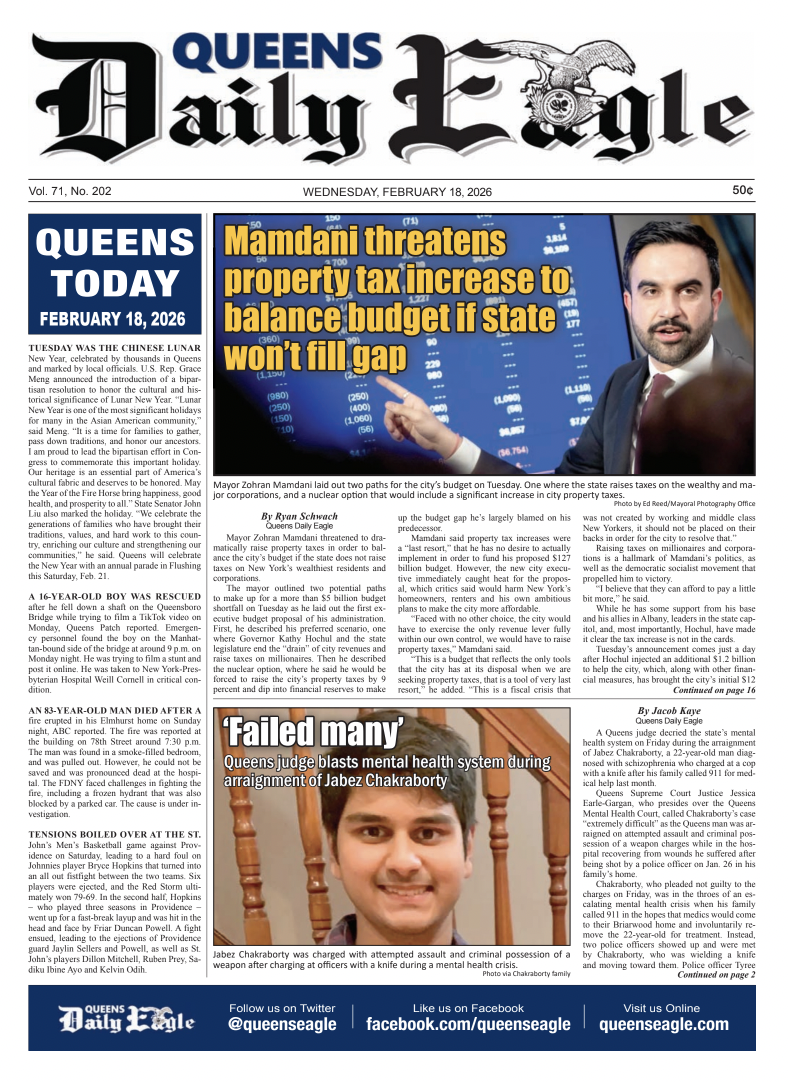‘We’re running out of time’ — Stringer slams schools pandemic response at Queens town hall
/Comptroller Scott Stringer, a candidate for mayor, talked with Central Queens leaders and community members at town hall Monday. Eagle file photo by Jonathan Sperling
By Rachel Vick
New York City Comptroller Scott Stringer slammed Mayor Bill de Blasio and Schools Chancellor Richard Carranza for a “total lack of leadership” in the city’s approach to education during the pandemic at a central Queens town hall on Monday.
U.S. Rep. Grace Meng, State Sens.Toby Stavisky and Joseph Addabbo, New York State Assembly Member Daniel Rosenthal, joined Queens Community Board 6 for the forum on the COVID response, which quickly evolved into a conversation of education inequity.
Stringer, a candidate for mayor, used the forum to lash out at Carranza and de Blasio but provided few policy specifics.
“Does he even understand what it’s like to have young children in a household that require babysitting and sometimes the decision of which parent is going to go to work and stay home?” Stringer said. “It is simply mind boggling to me how the Department of Education continues to work for everyone except the people the education department is supposed to serve.”
Stringer criticized the decision to force families to make a final in-person learning decision by Friday. The city had previously allowed parents to opt in or out of in-person classes on a rolling basis.
The deadline forces parents to make decisions “dictated by a bureaucrat [Carranza] who's embarrassed that he doesn't have enough kids in the school system so he’s basically blackmailing parents to bring their kids into school,” Stringer said.
Only about a quarter of New York City public school students were attending in-person classes by the end of October, according to city statistics.
Stringer and the other elected officials criticized the widening digital divide, exacerbated by low-income kids’ lack of access to WiFi and web-enabled devices.
The city has a responsibility to ensure that all students are making the progress they need to in order to mitigate what is becoming a “two-tier education system,” Stringer said.
“The city government has got to go door to door and go to these children, because they did not cause this pandemic, they are not responsible for the incompetence of the department of education,” he said. “I fear that through this pandemic the kids who are going to fall farther behind are the children who are already behind.”
“We are running out of time.”




